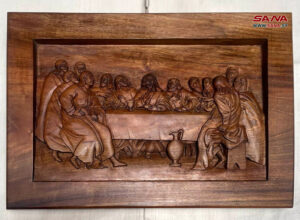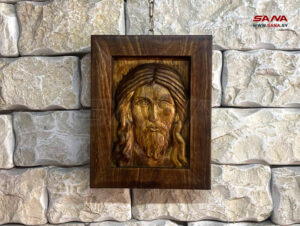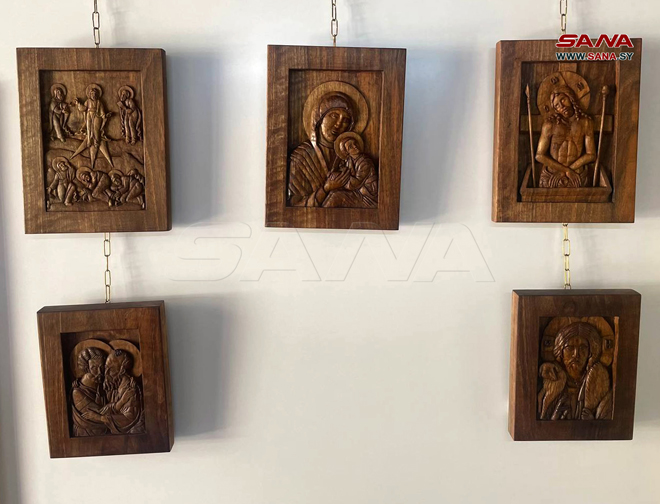Syria is unique in being one of the first countries to innovate the art of icon painting and contributed to its transmission to the world.
Since the sixth century AD, pictorial decorations of mosaics and frescoes began to appear in temples and churches, and the art of icons that embody religious themes emerged.
The roots of this art date back to pre-Christian times in the Greek and Roman eras, when artists painted human faces on wooden panels. The icon was mostly painted on wooden panels with a copper frame, and its themes reflected the popular, doctrinal, and spiritual heritage of the peoples of the region. The most commonly represented themes in icons are the stages of the life of Jesus Christ, religious events, and images of the Virgin Mary and saints.
 Sculptor Ibrahim Habib, who practices the sculptural work of icon, said in a statement to a SANA that the Syrian icon with its emotional depth belongs to the church and religious monasteries.
Sculptor Ibrahim Habib, who practices the sculptural work of icon, said in a statement to a SANA that the Syrian icon with its emotional depth belongs to the church and religious monasteries.He added that this art is not limited to churches, as it exists outside churches and ordinary people can own it in their homes, offices or even their workplaces, noting his love for practicing this profession as it stems from the core of Syrian art.
Habib stressed that Syria honored this art and preserved it and its spiritual and human dimension, while some Syrian sculptors and plastic artists worked to consecrate it in their various works.
The sculptor pointed out that the icon is a symbol and not a material, and it is a continuous work that has existed since the beginning of history, and artists are still trying to present and preserve it for future generations .
 Habib indicated that although the art of icons has been exposed to wars and pressures throughout history, it has maintained its continuity from generation to generation, through artists working to preserve and protect this authentic art.
Habib indicated that although the art of icons has been exposed to wars and pressures throughout history, it has maintained its continuity from generation to generation, through artists working to preserve and protect this authentic art.It is worth noting that the art of icons was exposed to theft, destruction and devastation during the war on Syria. Some icons were destroyed and damaged in churches in the city of Aleppo and were restored by the plastic artists Nimat and Bashir Badawi.
Rawaa Ghanam

